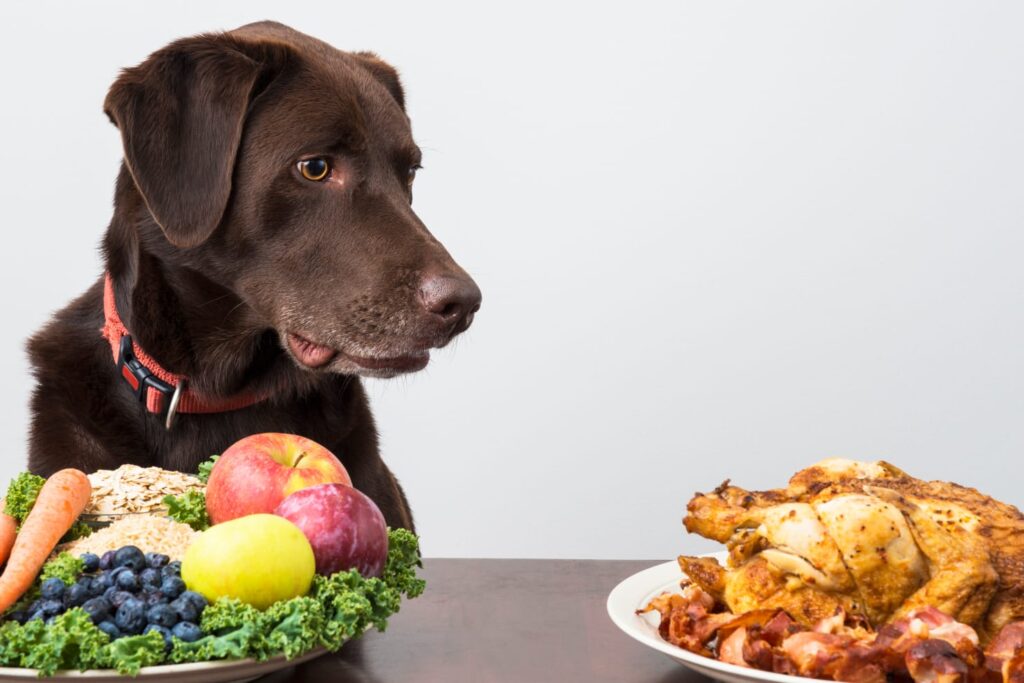The increasing demand for high-quality, nutritious food for pets has led to a significant rise in the production of human-grade dog food. Beyond improving canine health, this trend also fosters sustainable farming practices. By prioritizing transparency, quality ingredients, and eco-conscious production, the finest human-grade dog food contributes to a healthier planet.
Contents
What Is Human-Grade Dog Food?
Human-grade dog food refers to products made with ingredients fit for human consumption. These foods undergo stringent quality checks and are prepared in facilities that meet food-grade standards. Unlike traditional pet foods, which often use by-products and fillers, human-grade dog food focuses on whole, high-quality ingredients such as lean proteins, fresh vegetables, and grains.
Many pet owners wonder, is cinnamon OK for dogs. In moderation, cinnamon is generally safe and can even offer some health benefits, but excessive amounts should be avoided.
This commitment to quality benefits pets and promotes more responsible sourcing, supporting sustainable agricultural practices.
The Role of Human-Grade Dog Food in Sustainable Farming
1. Ethical Sourcing of Ingredients
Producers of the finest human-grade dog food in the United States prioritize ethical sourcing. These companies reduce environmental impact by working with local farmers who follow sustainable and organic farming methods. Ethical sourcing often includes:
- Avoiding the use of harmful pesticides and fertilizers.
- Supporting crop rotation and soil enrichment practices.
- Partnering with small-scale farmers helps reduce large-scale industrial farming and its associated ecological footprint.
2. Reduction of Food Waste
Food waste is a significant global issue, contributing to greenhouse gas emissions. Human-grade dog food companies can help reduce food waste by utilizing surplus or imperfect produce that would otherwise be discarded. These ingredients meet high nutritional standards but may not meet cosmetic requirements for human retail.
For example, blemished carrots or overripe sweet potatoes can be used in dog food, preventing waste while supporting sustainable supply chains.
3. Promoting Regenerative Agriculture
Regenerative agriculture focuses on restoring soil health, increasing biodiversity, and enhancing water cycles. Companies producing the finest human-grade dog food in the US often collaborate with farms implementing regenerative practices. This approach helps in:
- Sequestering carbon in the soil reduces overall greenhouse gas emissions.
- Enhancing water retention and preventing erosion.
- Supporting ecosystems through biodiversity.
4. Reduction of Industrial Meat Production
Many human-grade dog food brands prioritize responsibly raised meat. This often means using poultry, beef, or fish sourced from farms with ethical and sustainable practices, such as:
- Grass-fed or pasture-raised livestock.
- Avoiding factory farming, which is a major contributor to deforestation and pollution.
- Supporting the humane treatment of animals.
These brands encourage a more sustainable and ethical food system by shifting away from industrial meat production.
The Environmental Benefits of Sustainable Dog Food Production
The finest human-grade dog food in the United States not only supports sustainable farming but also benefits the environment in other ways:
- Lower Carbon Footprint: Local sourcing and reduced food miles contribute to fewer emissions.
- Eco-Friendly Packaging: Many companies use biodegradable or recyclable packaging to minimize waste.
- Renewable Energy Use: Some facilities producing human-grade dog food operate using renewable energy sources, reducing environmental impact.
Why Choose Human-Grade Dog Food?
Choosing the best human grade dog food is a decision that benefits pets, farmers, and the planet. Beyond providing superior nutrition for pets, these products encourage a shift towards more sustainable farming and food production systems. With a growing number of pet owners becoming environmentally conscious, the demand for eco-friendly options like human-grade dog food is expected to continue rising.
Companies like Din Din 4 Dogs have been at the forefront of offering the finest human-grade dog food in the US. They ensure that pets receive nutritious meals while supporting sustainable farming. Choosing these brands not only promotes pet health but also contributes to a more sustainable future for all.
Conclusion
Human-grade dog food is more than just a dietary upgrade for pets; it represents a commitment to sustainability and responsible agriculture. By choosing the finest human-grade dog food in the United States, pet owners foster ethical farming practices and reduce environmental harm.
Firms like Din Din 4 Dogs demonstrate that prioritizing quality and sustainability can benefit pets and the planet, paving the way for a healthier future.



